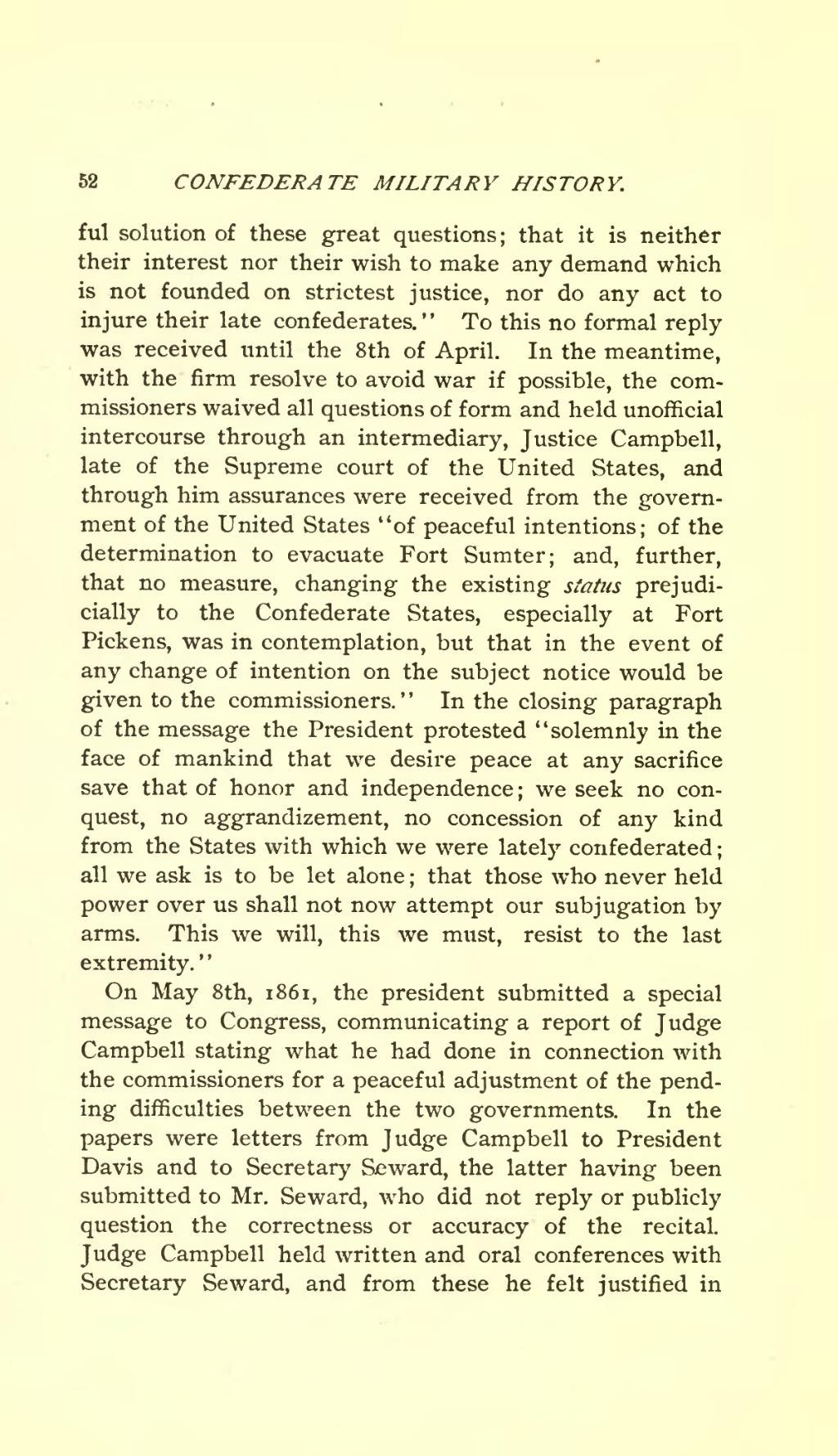ful solution of these great questions; that it is neither their interest nor their wish to make any demand which is not founded on strictest justice, nor do any act to injure their late confederates." To this no formal reply was received until the 8th of April. In the meantime, with the firm resolve to avoid war if possible, the commissioners waived all questions of form and held unofficial intercourse through an intermediary, Justice Campbell, late of the Supreme court of the United States, and through him assurances were received from the government of the United States u of peaceful intentions; of the determination to evacuate Fort Sumter; and, further, that no measure, changing the existing status prejudicially to the Confederate States, especially at Fort Pickens, was in contemplation, but that in the event of any change of intention on the subject notice would be given to the commissioners. In the closing paragraph of the message the President protested "solemnly in the face of mankind that we desire peace at any sacrifice save that of honor and independence ; we seek no conquest, no aggrandizement, no concession of any kind from the States with which we were lately confederated; all we ask is to be let alone ; that those who never held power over us shall not now attempt our subjugation by arms. This we will, this we must, resist to the last extremity."
On May 8th, 1861, the president submitted a special message to Congress, communicating a report of Judge Campbell stating what he had done in connection with the commissioners for a peaceful adjustment of the pending difficulties between the two governments. In the papers were letters from Judge Campbell to President Davis and to Secretary Seward, the latter having been submitted to Mr. Seward, who did not reply or publicly question the correctness or accuracy of the recital. Judge Campbell held written and oral conferences with Secretary Seward, and from these he felt justified in
